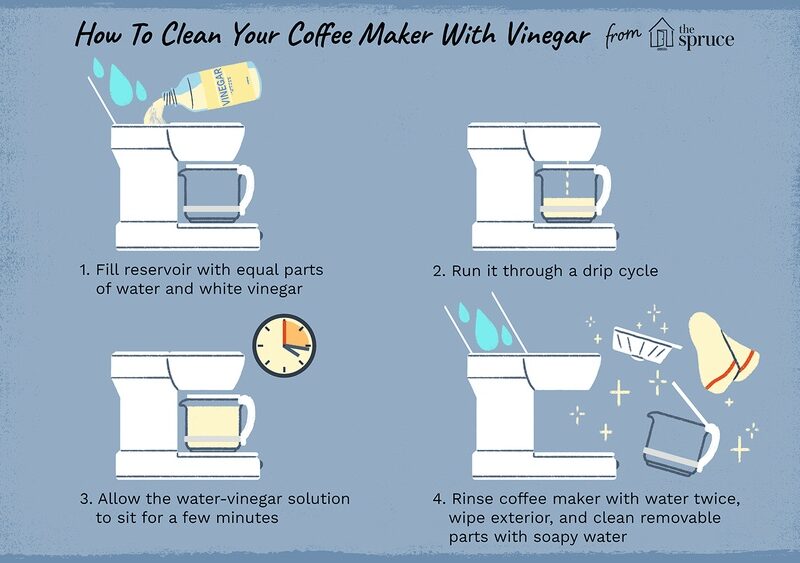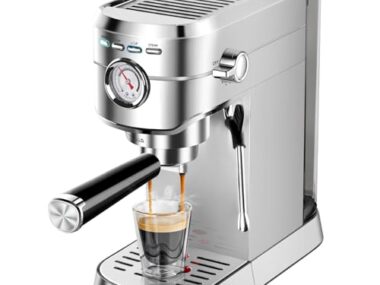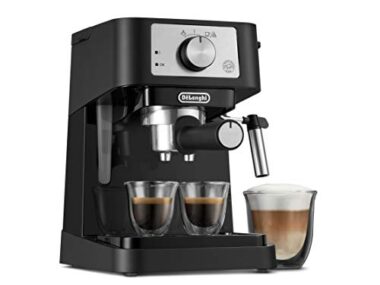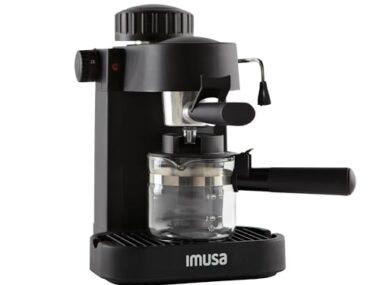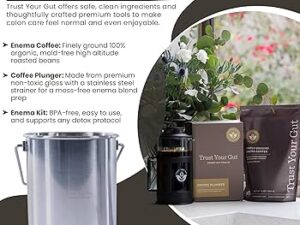If you love making coffee at home, keeping your espresso machine clean is a must. But when it comes to cleaning, you might wonder: is it ok to clean your espresso machine with vinegar?
You’ve probably heard vinegar is a natural cleaner, but is it really safe for your machine? Using the wrong method could damage your espresso maker or affect the taste of your coffee. Keep reading to find out the truth about vinegar and your espresso machine—and learn the best way to keep your coffee tasting fresh every time.

Credit: www.intensivemed.com.br
Why Clean Espresso Machines Matter
Cleaning your espresso machine is very important. It keeps your coffee tasting fresh and rich. Over time, coffee oils and minerals build up inside the machine. These residues change the taste and can cause problems.
Regular cleaning also helps the machine work well for a long time. A clean machine needs less repair and avoids breakdowns. Taking care of your espresso machine saves money and keeps your coffee great.
Effects Of Residue On Flavor
Residue inside the espresso machine changes the coffee flavor. Old coffee oils turn bitter and sour. This ruins the taste of fresh coffee shots. Minerals from water can clog parts and affect water flow. Clean parts help the machine brew smooth and tasty coffee every time.
Machine Longevity And Performance
Cleaning stops buildup that damages the machine. Minerals and coffee oils can block pipes and valves. This makes the machine work harder and breaks parts faster. A clean machine runs smoothly and lasts longer. Regular cleaning lowers repair costs and keeps brewing quality high.
:strip_icc()/How_to_clean_coffeemaker_0201-Step-01-Clean-With-Vinegar-828dacfe7f974698ad332dac86b70ed8.jpg)
Credit: www.bhg.com
Vinegar As A Cleaning Agent
Vinegar is a popular choice for cleaning many household items. It is natural and safe for most surfaces. People often wonder if vinegar is good for cleaning espresso machines. Understanding vinegar’s qualities helps decide if it suits this task. Below, we explore why vinegar works well as a cleaner.
Acidity And Its Role
Vinegar contains acetic acid, which gives it a strong cleaning power. This acid breaks down mineral buildup inside machines. It helps remove limescale and coffee stains effectively. The acid is mild enough to avoid damage if used properly. It also kills some bacteria and mold in hard-to-reach areas. This makes vinegar a useful tool for machine maintenance.
Common Uses In Kitchen Cleaning
People use vinegar widely in kitchens for cleaning tasks. It cleans glass, countertops, and stainless steel without harsh chemicals. Vinegar removes grease and odors from surfaces. It also cleans coffee makers, kettles, and dishwashers. Many trust vinegar as an eco-friendly and cheap cleaning option. Its versatility makes it a household staple for many.
Pros Of Using Vinegar For Espresso Machines
Vinegar is a popular choice for cleaning espresso machines. It offers several benefits that make it a practical option. Many coffee lovers prefer vinegar for its simplicity and effectiveness. Understanding its advantages can help you decide if it fits your cleaning routine.
Cost-effectiveness
Vinegar is very affordable compared to specialized cleaning products. A small bottle can last a long time. It saves money on expensive descaling agents. Most households already have vinegar at home. This makes it easy to use without extra shopping.
Natural And Non-toxic
Vinegar is made from natural ingredients. It does not contain harsh chemicals or toxins. This makes it safer for your health and the environment. Using vinegar reduces the risk of harmful residues. It is a gentle way to clean your espresso machine.
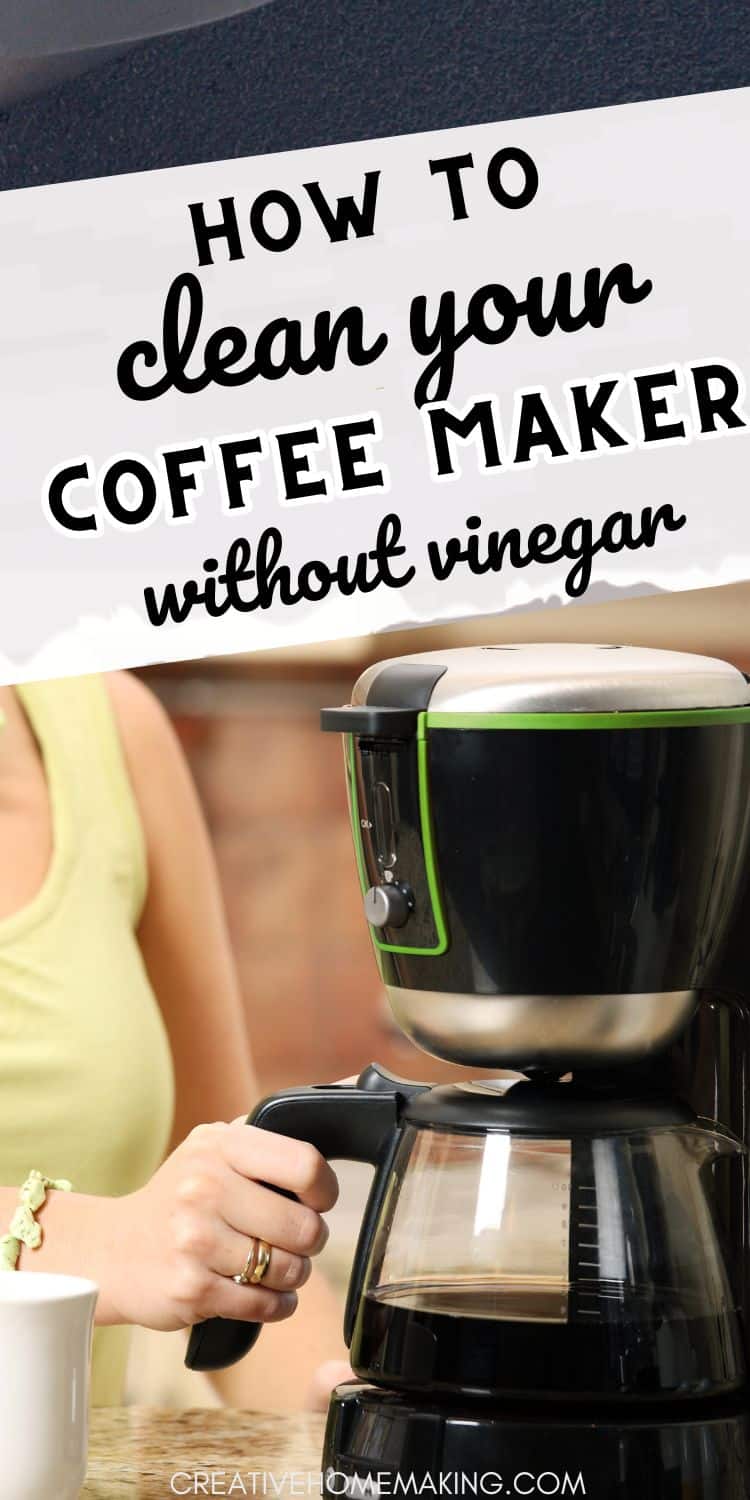
Credit: creativehomemaking.com
Risks And Drawbacks Of Vinegar
Cleaning an espresso machine with vinegar seems like a simple solution. Many believe vinegar removes buildup and keeps the machine fresh. Still, using vinegar carries certain risks and drawbacks. These can affect your machine’s performance and coffee taste. Understanding these risks helps you decide the best cleaning method.
Potential Damage To Machine Parts
Vinegar is acidic. This acidity can harm some espresso machine parts. Rubber seals and gaskets may wear out faster. Metal components can corrode over time. This damage leads to leaks or broken parts. Replacing parts can be costly and time-consuming. Some machines have sensitive internal parts that vinegar can damage. Using vinegar too often increases the risk of damage. This shortens your machine’s lifespan.
Lingering Odors And Taste
Vinegar leaves a strong smell. This smell can stay inside the machine for days. It can mix with coffee flavors and spoil your drink. The sour vinegar taste can be unpleasant. Rinsing the machine well may not remove all vinegar traces. This affects the quality of every cup. Your espresso might taste bitter or strange. The coffee experience becomes less enjoyable.
Safe Cleaning Alternatives
Cleaning your espresso machine is key for great coffee. Vinegar is common for cleaning but not always the best choice. It can leave smells or damage parts over time. Many safer options exist that clean well without risks.
Specialized Descaling Products
Specialized descaling products are made for espresso machines. They remove mineral build-up safely and quickly. These products do not harm machine parts or leave bad smells. Most brands offer easy-to-use powders or liquids. Follow the instructions for best results. These products keep your machine working longer and tasting better.
Home Remedies Other Than Vinegar
Baking soda is a gentle cleaner for espresso machines. Mix it with water to form a mild solution. It helps remove stains and odors without harsh effects. Lemon juice is another option. It is natural and can help break down mineral deposits. Use these remedies carefully to avoid machine damage. Always rinse the machine well after cleaning.
Step-by-step Vinegar Cleaning Guide
Cleaning your espresso machine with vinegar can help remove mineral build-up. This guide shows a clear and safe way to do it. Follow each step carefully to keep your machine working well and tasting great.
Preparing The Solution
Start with equal parts white vinegar and water. Use enough to fill your machine’s water reservoir. Mix well to create a gentle cleaning solution. Avoid using pure vinegar, as it can be too strong.
Cleaning Procedure
Pour the vinegar solution into the water tank. Turn on the machine and run the brew cycle halfway. Pause to let the vinegar sit inside for 15 minutes. Finish the cycle to flush out the deposits. Repeat if you notice heavy buildup.
Rinsing And Aftercare
Empty the water tank and rinse it thoroughly. Fill the tank with clean water only. Run two full brew cycles with fresh water to remove vinegar taste. Wipe the exterior with a damp cloth. Keep your espresso machine dry and clean after use.
Expert Recommendations
Experts share clear advice about cleaning espresso machines with vinegar. Proper care keeps your machine working well and extends its life. Knowing when and how to use vinegar is key. This guide breaks down expert tips on cleaning frequency and when to avoid vinegar.
Frequency Of Cleaning
Regular cleaning keeps your espresso machine fresh and safe. Experts suggest descaling with vinegar every one to three months. The timing depends on water hardness and machine use. Overuse of vinegar can harm some machine parts. Use vinegar carefully and follow with plenty of water rinses.
When To Avoid Vinegar
Do not use vinegar on machines with aluminum parts. Vinegar can corrode aluminum and cause damage. Avoid vinegar if the manufacturer advises against it. Some machines need special cleaning solutions instead. Check your machine’s manual before using vinegar. Using the wrong cleaner may void your warranty.
Frequently Asked Questions
Is Vinegar Safe For Cleaning Espresso Machines?
Vinegar is commonly used to descale espresso machines. It effectively removes mineral buildup. However, some manufacturers advise against vinegar due to its acidity. Always check your machine’s manual before using vinegar for cleaning.
How Often Should I Clean My Espresso Machine With Vinegar?
Cleaning with vinegar is recommended every 1 to 3 months. Frequency depends on water hardness and machine usage. Regular descaling prevents buildup, ensuring optimal espresso taste and machine longevity.
Can Vinegar Damage Espresso Machine Parts?
Vinegar’s acidity can harm rubber seals and internal components if used excessively. It’s best to dilute vinegar with water and rinse thoroughly after cleaning. Follow manufacturer guidelines to avoid damage.
Are There Alternatives To Vinegar For Espresso Machine Cleaning?
Yes, specialized espresso machine descaling products are available. They are designed to be safe and effective. Using recommended cleaners ensures proper maintenance without risking damage.
Conclusion
Cleaning an espresso machine with vinegar can work but needs care. Vinegar removes mineral build-up effectively. Too much vinegar or frequent use may harm machine parts. Always rinse well after using vinegar to avoid taste problems. Some machines may need special cleaners instead.
Follow your machine’s instructions for best results. Keeping your espresso machine clean helps make better coffee every day. Simple steps keep your machine lasting longer and brewing great coffee. Choose the right method and enjoy fresh espresso every time.
